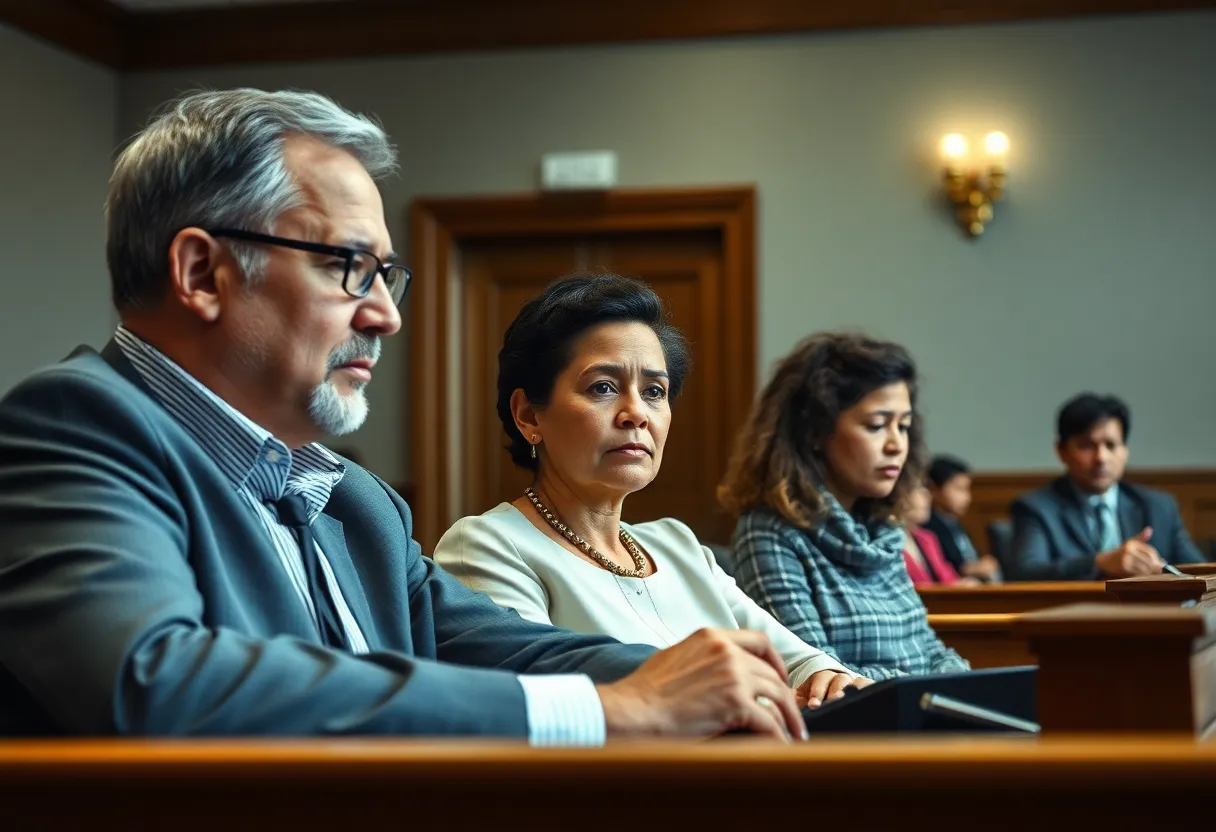News Summary
The Perkins family faces legal challenges against the U.S. government over mesothelioma linked to asbestos exposure from military service.
Federal Lawsuit Highlights Struggles Against Asbestos Exposure
In a recent and significant case, the challenges faced by families affected by mesothelioma have come to the forefront as Tristan Perkins filed a lawsuit against the United States government. This case revolves around the tragic diagnosis of her mother, Geraldine Perkins, who was allegedly exposed to asbestos through her husband’s work attire. The legal battle not only questions accountability for past actions but also highlights the complexities of navigating lawsuits against a sovereign entity.
Background of the Case
Tristan Perkins’s father, Harang Joseph Perkins, served as a Navy Machinist Mate at the Puget Sound Naval Shipyard from 1968 to 1974. During this time, it is believed that he was exposed to asbestos-containing materials, raising concerns about secondary exposure to his wife, Geraldine, when she laundered his work clothes. Mesothelioma, a rare and aggressive form of cancer linked to asbestos exposure, has devastated the Perkins family, leading them to seek legal remediation against the government.
Government’s Immunity and the FTCA
The United States government traditionally enjoys a cloak of immunity from lawsuits unless it explicitly consents to be sued. The Federal Torts Claim Act (FTCA) provides a potential route for waiving this sovereign immunity under specific circumstances. However, navigating these legal waters can be treacherous due to the discretionary function exception inherent in the act.
This exception applies to actions that involve government employees’ judgment or choice, allowing the government to argue that its policies regarding asbestos management were discretionary in nature. The U.S. government moved to dismiss the Perkins lawsuit, contending that the Navy’s asbestos protocols allowed for considerable employee discretion.
The Court’s Evaluation
The U.S. District Court for the Western District of Washington undertook a dual-phase assessment to examine the government’s claim of discretionary immunity. The first phase sought to determine whether the actions in question involved any judgment or choice. If a statute or policy mandated specific actions, the government would be liable, but if discretion existed, it would move to the second phase regarding public policy considerations.
In December 2024, the court identified that certain Navy policies, particularly outlined in Chapter 9390 of the Naval Ships Technical Manual, prescribed mandatory procedures for handling asbestos, including immediate sealing of scrap materials and issuing clean coveralls to workers. This finding suggested that the U.S. could be subject to legal scrutiny regarding the alleged violations of these procedures.
The Outcome and Implications
Despite these acknowledgments, the court ultimately ruled against the Perkins family, determining that they had not sufficiently demonstrated substantial para-occupational asbestos exposure for Geraldine Perkins as a result of the Navy’s actions. The evidence presented showed that Harang Joseph Perkins had not frequently worked with asbestos materials, and any supposed failures in compliance by the Navy did not noticeably increase asbestos exposure transferred to his clothing.
The ruling noted that expert testimonies from the Perkins family were deemed speculative and unconvincing. Many of the assumptions made regarding extensive asbestos exposure were based on outdated recollections from over five decades ago, complicating the causation argument central to the case.
A Sign of Future Legal Battles
The Perkins case sheds light on the broader theme of government immunity in asbestos litigation. As courts have historically upheld the discretionary conduct rule, families seeking justice face significant hurdles even when they can proceed with claims. The outcomes of such cases may very well shape future legal strategies, encouraging plaintiffs to include the U.S. government as a defendant or third-party entity in upcoming lawsuits related to asbestos exposure.
With the complexities of the legal landscape, the Perkins family’s journey highlights the importance of understanding the implications of the FTCA and the challenges families face when seeking accountability from those responsible for workplace hazards.
Deeper Dive: News & Info About This Topic
HERE Resources
Emerging Technologies in Mesothelioma Treatment
Health Canada Approves New Mesothelioma Treatment
Veterans and Mesothelioma: A Silent Battle Against Asbestos
Mysterious Malignancies: The Challenge of Treating Rare Cancers
Exciting News: Pembrolizumab Plus Chemotherapy Now Approved for Advanced Mesothelioma!
Major Redevelopment of Norwich Secondary School Under Way
Historic Hangar 3 Engulfed in Flames at Old Sarum Airfield
Asbestos Delays Construction of New Community Diagnostic Centre
Metallic Mystery: Iron Fragment Falls from Sky in Odisha
The Asbestos Roof Removal Trial Shakes Free State High Court



















